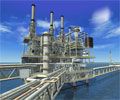
The US Environmental Protection Agency's raising of emissions limits for 10 states under its Cross-State Air Pollution Rule under proposed revisions Thursday has caused a BNP Paribas
analyst on Friday to revise slightly downward her forecast for the resulting gas demand next year.
BNP's Teri Viswanath in mid-September had stated US gas demand could rise by as much as 1.5 Bcf/d next year as a result of the rule, which seeks to curb interstate pollution from coal-fired power plants. On Friday, she wrote in an analyst's note, that gas demand bump would be no more than 1.25 Bcf/d "due to slightly lower demand associated with the rise in permissible emissions for Texas and increased allowance trading."
By 2014, however, she maintained her forecast that the US would expect a need for an additional 2 Bcf/d as a result of the rule.
On Thursday, the EPA said its revisions will not affect the core elements of the Cross-State Air Pollution Rule, which takes effect January 1.
The rule covers 27 states and employs an emissions allowance market to facilitate reductions of sulfur dioxide by 73% and nitrogen oxide by 54% below 2005 levels by 2014.
EPA's proposed revisions include increasing the annual NOx budgets for Michigan and Nebraska and increase the annual SO2, NOx and ozone-season NOx budgets for New Jersey, New York, Texas and Wisconsin.
Another significant revision would be a two-year postponement of the effective date of the assurance penalty provisions from 2012 to 2014.
Several states and power producers had already begun litigation to stop the rule, including the state of Texas and Luminant.
Viswanath noted that though critics were expecting the rule to be set aside by the courts, BNP Paribas remained "cautious."
"Perhaps in an attempt to stave off such criticism, the EPA has stressed that the proposed revision is largely a technical fix," she wrote.
"In any event, we assume that CSAPR will be fully implemented in 2012 and will have a significant impact on natural gas demand."
Source: Platts
We use cookies to improve your experience. By continuing to use our site, you accept our Cookies, Privacy Policy,Terms and Conditions. Close X